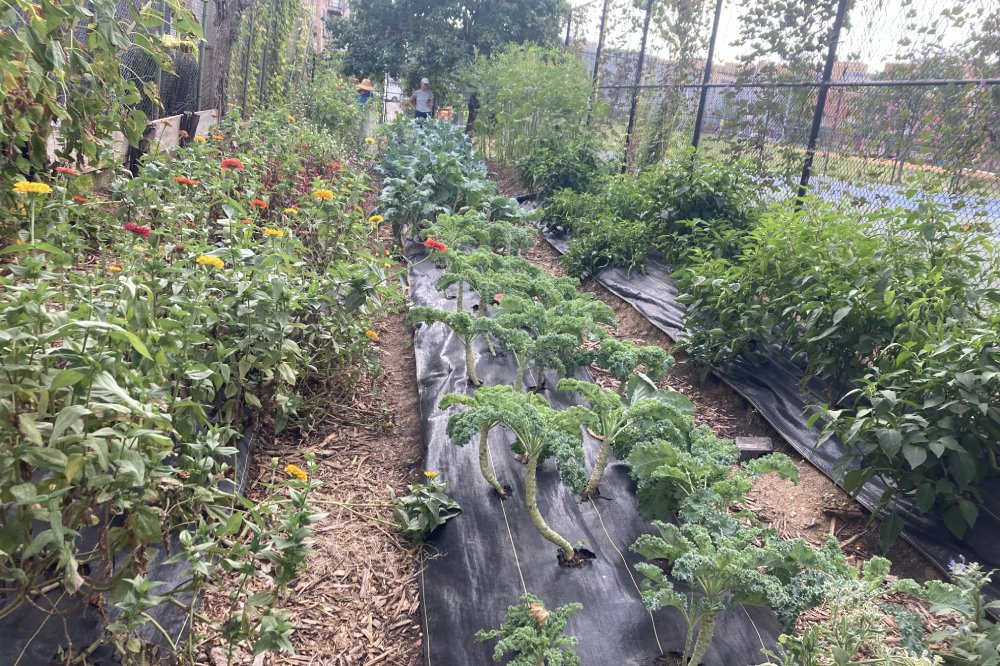Life
 Photo courtesy of Powell Communal Farm.
Photo courtesy of Powell Communal Farm.
Eat Fresh + Local by Working with one of D.C.’s Communal Farms
August 29, 2023 @ 10:00am
Check out ways to get involved and learn more about the benefits of locally grown produce.
There is nothing better than eating freshly picked veggies straight from the garden. But time, space or an absent green thumb makes gardening a challenge and eating organic and locally can get costly. Luckily, you can still grow your tomatoes and eat them too at your local communal farm.
Back in 2020, the DC Department of Parks and Recreation (DPR) had two models of urban agriculture: community gardens where everyone gets their own plot and partner farms that work with non-profits. When the Covid-19 pandemic forced programs to shut down, Joshua Singer, the department’s Community Garden Specialist, decided to use their newly opened Edgewood Rooftop Farm to plant one big communal lot. This production style of farming proved to be not only productive, but more inclusive and lower barrier than community gardens.
“With community gardens, it can take like, five years to get a plot,” Singer says. “They can be very exclusive. There’s gonna be a lot of drama; everyone’s working for themselves.”
Making the switch to communal farms, Singer now operates the Edgewood location, Lederer Gardens in Northeast D.C. and most recently Powell Community Farm in Columbia Heights. At the end of 2022, the farms grew and gave away about 10,000 pounds of produce through their weekly veggie giveaway. Everyone is welcome to come by the farms and pick up produce during giveaway hours or stop by open hours to volunteer, learn and self-harvest.
“We have a lot of great volunteers,” Singer says. “We have a retired horticulture professor that is just a fountain of knowledge. And we have so many different people; they have so many different experiences, I think that’s how we are always learning— just through the people showing up.”
For those not keen on greens, DPR also offers programming like making herbal medicines and flower arranging classes. With their communal beehives, the department was able to give away about 200 pounds of raw organic honey (great for allergies). In the Lederer and Edgewood locations, there are resident chefs that do cooking demonstrations using the crops that are given away.
“It’s really important, to not just give people things like eggplant, but to show them how to actually cook it and make it super delicious,” Singer says.
According to Singer, the best way to stay notified about the farms’ happenings is through his weekly email. August and September will be ripe with fall crops like kale and collards — perfect for sneaking into soups to up the daily veggie intake.
“I don’t think we’re making a dent on hunger, that’s a more systemic issue,” Singer says. “What we’re trying to do is look at this food like medicine. We’re trying to get as much natural medicine to people as possible. If they could just eat a bunch of organic, locally grown vegetables once or twice a week — if we can just add that to a lot of people’s diets — that’s going to have a huge impact on their health.”
Interested in joining the community? Visit https://dpr.dc.gov/page/partner-urban-farms or email [email protected] for more information.
Want first access to select community gardens around D.C.? Join the District Fray community, where you’ll access local guides and recommendations. Become a member and support local journalism today.







